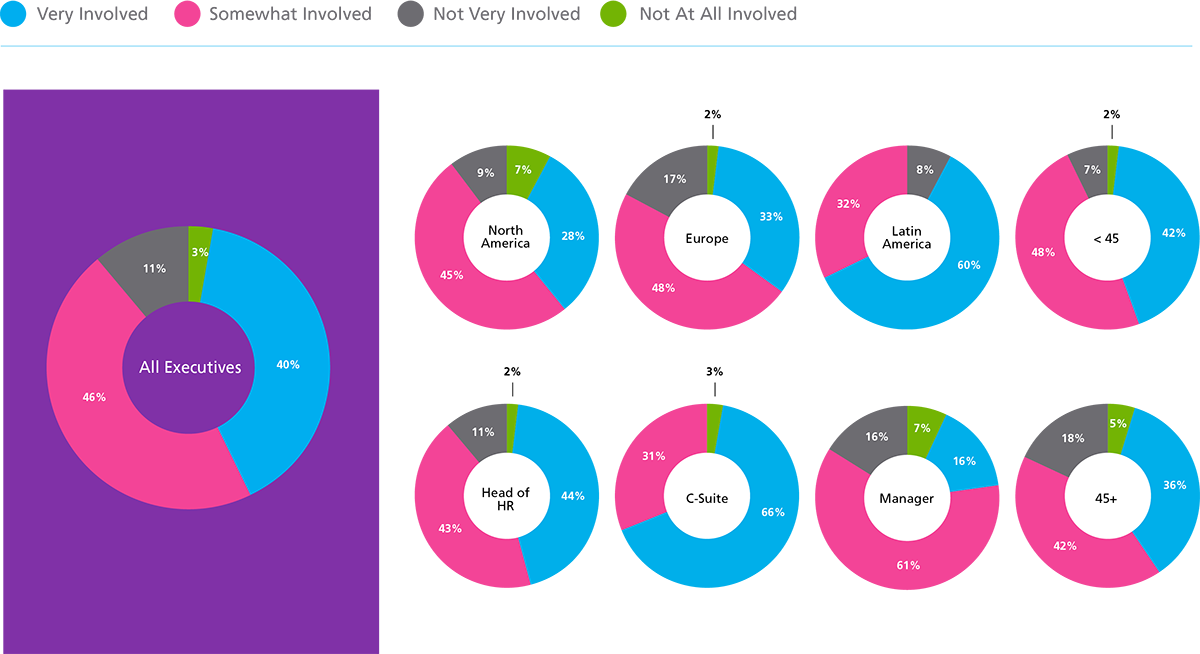How technology is changing the role of CHROs and senior HR executives.
“In the world of high-speed, disruptive technological changes, people will continue to play a key role when it comes to transforming new tech into real results and achievements.”
Poliana Lanari
Managing Director,
Harting, South America
Driving Change
The vast majority of human resources executives – 94% – believe it is important that they play a critical role in developing strategies to deploy technology and AI solutions at their companies, while 55% say it is very important.
This focus on the role of HR in deploying new technology is even more prominent in Latin America, where 76% of HR executives believe it is very important that they be involved in developing these strategies.
According to Alexandre Sabbag, Partner, Boyden Brazil, the increased focus on HR’s role in LatAm is driven by specific regional conditions. “Market challenges in Brazil have forced many HR executives to take on new responsibilities and develop new skills. Thus, those that have emerged since the economic crisis have often developed knowledge surrounding technology, AI and other skill sets, resulting in greater value for their companies,” he explains.
How involved are you in developing the strategy necessary to deploy technology and AI solutions at your organization?

“It is imperative that companies drive technological changes that improve the HR function. New technology will help with cultivating and energizing both current and future employees, while simultaneously driving engagement and retention.”
Karen Brandenburg Viera
Senior VP of Human Resources and Internal Communications
Church’s Chicken
There is, however, a slight gap between what HR executives hope to see and how these changes are actually unfolding. While 94% believe it is important that they are involved, only 86% of HR decision makers say they are actually involved in developing the strategy necessary to deploy technology and AI solutions at their organizations.
“The human resources profession has a long way to go to maximize the opportunities that new technologies present.”
— Barry Bloch, Partner, Boyden Australia
This lack of alignment between expectations and reality could perhaps be attributed to a skills gap. While traditionally the role of HR has largely been focused on communications, new technology is shifting the skills required of HR professionals.
As Birger Svendsen, Managing Partner, Boyden Norway and EMEA Leader, Human Resources Practice says, “Companies are transforming to cope with the new realities of digital, and this has a tremendous impact on both human assets and the role of the CHRO.”
Indeed, the advent of AI is beginning to influence the kinds of skills needed to succeed in HR.




